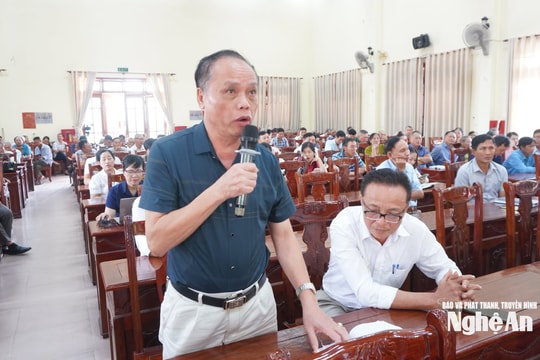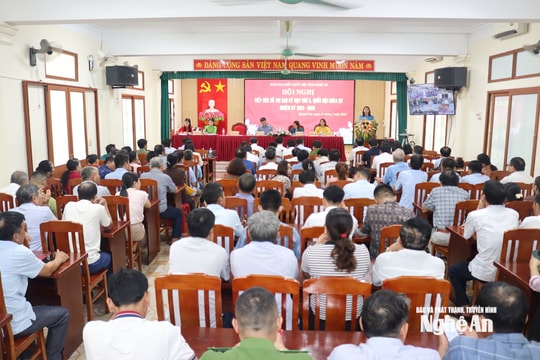A series of shortcomings in the revised Law on Legal Aid project
(Baonghean.vn) - On the morning of November 10, the National Assembly discussed the draft revised Law on Legal Aid in the hall. Speaking at the hall, delegate Hoang Thi Thu Trang (Nghe An delegation) expressed her strong agreement with the idea of building a streamlined, professional, high-quality legal aid model, while also pointing out a series of shortcomings of this bill.
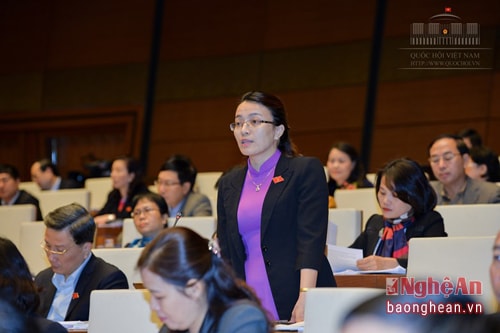 |
| Delegate Hoang Thi Thu Trang spoke at the discussion hall. |
"The idea of reducing the scope of TGPL; reducing collaborators and especially cutting TGPL branches which have long been considered as the branches of the TGPL center is really a very bold idea, like a "surgery". Because in my opinion, this idea will reduce the interests of the industry, however, from the perspective of the common interest, the interests of the State and the people, it is very beneficial" - the Director of the Civil Judgment Enforcement Department of Nghe An province stated his opinion.
Commenting on the draft Law, Ms. Trang said that currently, our country has two types of free legal services: one is organized and implemented by the State, the other is voluntary legal services implemented by other organizations. Voluntary legal services are provided by many individuals and entities; the conditions and standards of the service depend on the will and resources of these individuals and entities.
According to the delegate, the Law on Legal Aid only regulates activities in the first group, that is, only regulates the provision of legal services performed by the State; the State has the right to attract people with legal expertise to perform legal aid (by paying salaries or signing contracts).
"This does not affect those with legal expertise, practical knowledge, and understanding of socio-economic fields, customs, etc., who participate in providing legal services to the disadvantaged; they can join the group providing voluntary legal services as mentioned above" - the delegate noted.
However, she still suggested that the drafting committee consider further that for litigation participation and extra-litigation representation activities, only sign contracts with 3 groups of people: assistants, lawyers, and legal consultants as in the draft. Particularly for legal consulting activities, in addition to lawyers and legal consultants, it is necessary to expand the signing of contracts with people who have in-depth knowledge of socio-economic fields, customs, local languages, etc.
In addition, delegates proposed that the draft clearly stipulate that the signing of contracts with lawyers and legal consultancy organizations is not limited by location; lawyers and legal consultancy organizations in one province can sign contracts with the State management agency of legal aid in another province. This provision will overcome the situation in some localities where the number and quality of this team is limited, leading to a lack of resources to implement legal aid.
Delegate Hoang Thi Thu Trang also said that, regarding the agency signing the contract, assigning the responsibility of signing the contract to the Legal Aid Center is inappropriate. In order for the Legal Aid Center to focus on its expertise, according to her, the responsibility of signing the contract should be assigned to the Department of Justice; the Legal Aid Center is a legal service provider, similar to other public service units operating in the judicial field such as: Property Auction Service Center, Notary Office under the Department of Justice - are only public service providers.
 |
| National Assembly Chairwoman Nguyen Thi Kim Ngan talks with Nguyen Dac Vinh - Member of the Party Central Committee, Secretary of the Provincial Party Committee, Head of the National Assembly Delegation of Nghe An province on the sidelines of the meeting. Photo: Anh Tuan. |
Regarding the dispute resolution mechanism and compensation for damages of legal aid assistants and legal aid centers, the draft regulation stipulates that in case of disputes or damages between the person receiving legal aid and the legal aid assistant or legal aid center related to the implementation of legal aid, the dispute resolution shall be carried out in accordance with civil law.
However, the Director of the Civil Judgment Enforcement Department of Nghe An province said that this regulation needs to be re-examined. Because the Legal Aid Center is a non-profit public service unit; the assistant is a civil servant (in the case of the head of the Legal Aid Center), or an official.
They are the people assigned by the State to provide public services – legal aid services for the disadvantaged; an activity of great humanitarianism and humanity. However, according to the draft, if legal aid has a dispute, error, or consequence, it must resolve the dispute and compensate for damages according to civil law.
"In our opinion, such regulations do not provide adequate responsibility, do not match the nature of the problem, and are also unfair between facilitators, legal aid centers, and other civil servants, public employees, and public service units," the delegate said.
Although there has not been a practical assessment of disputes and compensation settlement in the past, however, the delegates of Nghe An province firmly believe that as the socio-economy develops and international economic integration deepens, the nature of legal disputes will become more and more complicated, and disputes and compensation will not be simple.
Therefore, delegate Hoang Thi Thu Trang suggested that it is necessary to seriously and thoroughly study this issue to have a legal basis to handle the issue, both ensuring the rights of people receiving legal aid but also ensuring fairness, promoting the responsibility, dynamism and creativity of the facilitators and legal aid centers.
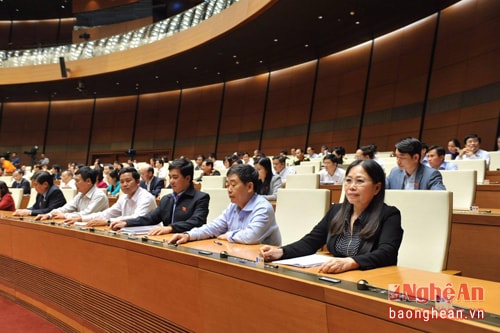 |
| Delegates passed the Resolution on the medium-term public investment plan for the 2016-2020 period. Photo: Anh Tuan. |
Previously, with 89.88% of delegates in favor, the National Assembly passed the Resolution on the medium-term public investment plan for the 2016-2020 period.
In this Resolution, the National Assembly resolved that the total medium-term investment capital from the State budget for the period 2016 - 2020 is a maximum of 2 million billion VND, including central budget capital of 1,120,000 billion VND (foreign capital of 300,000 billion VND, domestic capital of 820,000 billion VND), of which 260,000 billion VND of government bond capital is issued (including 60,000 billion VND of government bond capital carried over from the period 2014 - 2016), money from selling state capital at a number of enterprises is 250,000 billion VND. Local budget balance capital is 880,000 billion VND.
Reserve for the medium-term investment plan of state budget capital for the period 2016 - 2020 to handle problems arising in the process of implementing the medium-term investment plan according to the general reserve level of 10% for each capital source; central and local ministries, branches and localities reserve 10% of the total capital allocated according to the medium-term plan for each capital source...
In the afternoon, the National Assembly continued to discuss in the Hall the Draft Law on Management and Use of State Assets (amended).
Duong Gim - Diep Anh - Anh Tuan


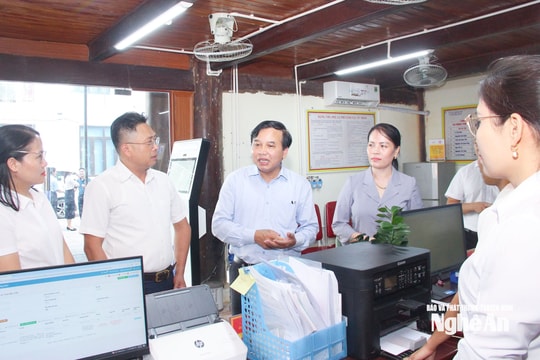

.jpg)
